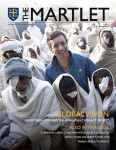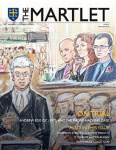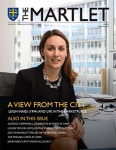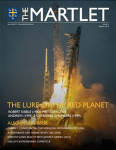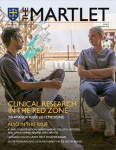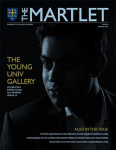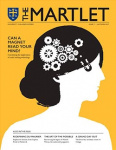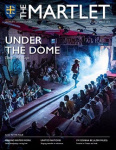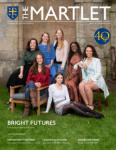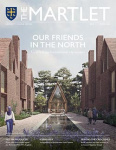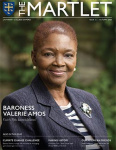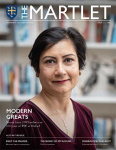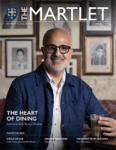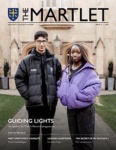Profile: Ebenezer Azamati
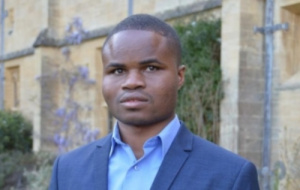
Ebenezer Azamati, (2020, DPhil International Relations)
An ardent Clausewitzian with keen interests in the interactions between wars and the origins of World orders, Azamati is a Student in Residence at Univ, and reads for the DPhil in International Relations. His research examines Realpolitik and illiberal Great Powers’ conceptions of established international doctrines and liberal concepts. In particular, he is a student of Classical Realism in training who investigates the complex connections between international commitments and the raison d’état of cardinal powers involved in the management of the international order via pre-eminent international institutions.
What brought you to Univ and what brought you to Oxford?
Getting into Oxford was a dream come true, not only because it is a place that has the ability to enable people to realise their potential, but also the fact that it is an intellectually stimulating community, one that you join to increase your knowledge, and to deepen your understanding of the world. It’s an institution full of people from diverse backgrounds and people with all sorts of interests. Univ’s intellectual agility blended with institutional flexibility was what really drew me to the College.
When I read for my Master’s in International Relations at Oxford I thought, “Why put a stop to my academic curiosity?” There’s so much to explore and Oxford provides you with that opportunity to be able to explore your knowledge as much as you can.
What have you been focusing on recently?
Essentially, I’m researching how and why China and Russia engage with international liberal practices. Clearly, China and Russia are not liberal states so it’s intriguing to see them engage with international liberal doctrines that appear to undermine their own styles and systems of government as permanent members of the Security Council. In the Council they have the power to veto the liberal decisions that are made, yet they participate in them. It’s fascinating to investigate how much a country like Russia would largely like to operate within the UN Charter. The UN Charter, from whichever angle you look at it, is a liberal document, much more than anything. To see Russia championing its tenets and always standing up for them is contradictory to a large extent – that’s putting it mildly. Russia could undermine the Charter, just as the US has at times undermined it, but they choose to uphold the Charter and its liberal prescription.
Why do you think that is?
I’m hypothesising that Russia and China are pursuing hard-headed Realpolitik. But this time multilaterally, so the UN Security Council for them is a means to achieving specific ends. And for them, it is the ends that justify the means. Other countries may regard the UN Security Council as the institution responsible for maintaining international peace and security. However, Russia and China see it as a means to achieving their particular national interests.
What do you plan on doing after your DPhil?
Immediately after, I would like to distil my findings into a book, so that means I would enter academia briefly, but in the middle to long term I would prefer to be a practitioner so I will probably go into diplomacy.
What has your experience of the graduate community at Univ been like?
Unfortunately, I arrived at a time when the pandemic was in full swing. I haven’t been able to experience so much of the life of an in-person graduate community. But I must say the few people I have come into contact with have been very nice and there were also lots of events for Welcome Week.
I’m rather hoping to be able to be more involved in the Univ graduate community when things open up again
What advice would you give to someone considering Oxford/Univ?
I would say they should go for it. It’s a really warm community, very diverse and very forward-looking. I have enjoyed how much people always want to have rigorous intellectual discussions and engage in all sorts of activities, like punting! Part of the reason for staying in Oxford was the very many accessible facilities, more importantly that the University has almost 150 libraries. So, you can rest assured that wherever you go and whenever, you will find a wonderful library to study in. And add to that the extremely welcoming academics! The staff are really approachable and lovely. Every time I’ve passed by the Lodge or go to Hall there’s always something to laugh about with them!
I’m hoping to attend more of Univ’s academic events. When I was at my previous college, I attended a few events at Univ as a non-Univite and they were really engaging. I’ve attended a couple of events on Zoom and they have been eye-opening.
Univ arranges really good discussions, it brings together respected researchers and excellent speakers. There’s also a good level of consultation among students before programmes and events are organised. It is really nice because it helps to create a seamless relationship between the students and the College administration. I will always recommend Univ to people who are intending to come to Oxford to study.
So many of the people that have come to speak here I would normally only have read about. It has been fascinating to sit before professors whose work I read as an undergrad. You meet people you would probably never otherwise meet in your lifetime. Being at Oxford offers you the singular honour of sitting in front of such people and even having a chat with them during a post-event tea.
Have you experienced any challenges in your life that you’re happy to share here? And if so, how did you cope with them?
The challenge of being a visually impaired person. The first time you step out, you face a challenge because society makes assumptions about you. Sometimes you go to places where they have never had any person like you before so they haven’t made provisions. You sometimes have to stop, start, negotiate and fight to get provisions made for you. What has helped me is my appreciation of the fact that every institution is a human institution and, as humans are not perfect, it follows that institutions formed by humans would obviously not be perfect. But can we strive towards perfection? I would say yes. I do not shy away from bringing forth problems to bear.
At all times, I try to draw the attention of leaders, management, etc, to those problems, and, where possible, suggest solutions and participate in efforts to resolve those problems.
What do you think will be the benefits of the Univ North development to future generations of students?
It’s going to open up the College and there will be more accommodation for students. Hopefully, there will be an even closer-knit community and also many more facilities for students.
What’s your favourite part of the College?
I love the library. In fact, even when I wasn’t at Univ, I used to sneak in with a friend of mine occasionally. It’s a really lovely library to work in.
Could you describe Univ in three words?
Univ is home.
Photo by David Hartley
This feature was adapted from one first published in Issue 13 of The Martlet; read the full magazine here or explore our back catalogue of Martlets below:
Published: 24 May 2021

